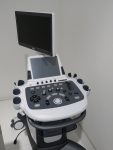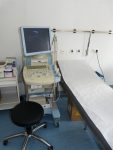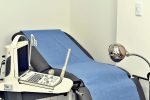
The period after graduation is very important in the life of every person, as that is the moment when they decide about their future.
No matter if you are just staring our higher education or you are a person who is considering changing the career, we are here to suggest a medical field that is highly promising and will be experiencing advancement in the future.
To make this very stressful time bearable, we have gathered all the necessary information which you may find useful when sonography is in question.
But have in mind that there is much to consider, that is, your personal interests and strengths, to training, education, and potential income upon graduation.
The healthcare sector boasts a consistent growth over the past few years, causing a huge number of open jobs.
Within this industry, the field of medical imaging and diagnostic medical sonography are extremely popular career choices.
This is due to the relatively short educational and training period, followed by strong job growth and salary potential.
If these reasons are good enough for you to start thinking about becoming ultrasound technicians, we are here to support you.
Page Navigation
Sonography Career Outlook
It is true that the whole healthcare industry is on the rise for various reasons,.
Both the aging baby boomer generation and the advancements in health-related technology make this career more attractive and improve job outlook.
According to the statistics, diagnostic medical sonography is ranked 4h in terms of best healthcare support jobs, which means that it is expected around 21,000 jobs opening up by 2026 and a growth rate of 17%.
Finding Success in a Growing Industry
Now, figures do not always present the real situation, as your earning potential will be highly dependable on your proficiency as a sonographer.
This profession requires a technical and scientific skill set that can be achieved through appropriate education.
Most ultrasound technicians have a two-year associate’s level degree, or a certificate in sonography if they hold an associate’s in another field.
During these studies, they are engaged in both technical training in the classroom that is accompanied by training in the field, in a clinical or hospital setting.
Having in mind the fact that most sonographers work in hospitals, long shifts, and 12 hour days, nights, or weekends, a prospective sonographer should consider having some physical qualities as well.
When it comes to the physical requirements of sonographers, they include:
- Ability to work in a fast-paced environment
- Strong attention to detail
- Ability to work in a high-stress environment, dealing with potentially ill and scared patients
- Must be able to lift up to 80 pounds
- Stand and walk for hours at a time
- Reach and hold arm positions for long periods of time
Besides all these qualities that sonographers must possess, there are other skills that are also required.
They refer to the ability of someone to interact effectively with others and those cannot be taught at school.
Compassion, effective communication, listening, are some of the essential characteristics of a good sonographer.
Good people skills can set a job applicant apart from the rest, as employers would like to hire a person who will know how to deal with people in need and despair due to their diseases.
Demand for Sonographers
Imaging technology is constantly experiencing an advancement, and all those novelties lead facilities to increase the utilization of ultrasound.
These procedures are often less expensive and invasive than traditional methodologies, but they require a skilled person to perform them.
Due to the fact that the use of ultrasound is growing, in the case of both diagnostic and therapeutic purposes, the need for good sonographers is constant and many states lack educated and certified sonographers to do the job.
Some examples of how ultrasound is applied to treatment plans include:
- HIFU (High-Intensity Frequency Ultrasound): This is a kind of ultrasound that targets damaged or diseased tissue and directs high-intensity sound waves towards it in order to heat and destroy it.
- Sports injuries: Ultrasound is used by some physicians when treating their patients with problems such as tendinitis or plantar fasciitis. Actually, circulating the ultrasound probe over the damaged area is said to help relieve pain and soften scar tissue. Some physicians also use core ultrasound, which is a tool used to help prevent chronic back pain and injury. MRI’s are also playing an important role in diagnosing sports injuries.
- Ultrasound as a Guide: In case a needle needs to be inserted into a hard-to-see location, such as when an abscess needs to be drained or during catheterization or biopsy, the ultrasound acts as a surgeon’s or physician’s eyes.
If used diagnostically, ultrasound can be used for many purposes, including:
- Female Reproductive System: A pregnant woman’s ultrasound is performed to assess the health of her fetus, determine the gender, approximate age of conception, and to determine if there are any complications or abnormalities. Plus, a gynecologic ultrasound is used to check whether everything is fine with a female’s reproductive system and it is an ideal tool to look for signs of uterine fibroids, endometriosis, ovarian cysts, and other complications.
- Male Reproductive System: Ultrasounds are done on the male’s reproductive system, as well, such as his testicles and prostate. They are ideal tools used for the detection of abnormalities and injuries, possible signs of infertility, cancer, and more.
- Musculoskeletal System: Ultrasounds may also be performed with the aim to identify tears, signs of arthritis, hip dislocations in infants, fluid build-up in joints, and more.
- Breast: Ultrasounds are usually performed on breasts if an abnormality was caught on a mammogram, while younger females have a greater benefit from an ultrasound than a mammogram because their breast tissue tends to be denser.








